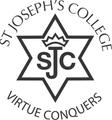DEPUTY PRINCIPAL LEARNING AND TEACHING

REPORTS AND PARENT ACCESS MODULE (PAM)
It is hard to believe that the end of Term 1 is fast approaching. Staff are currently working on completing Mid-Semester Reports for our students. These will be available for parents to view or download on the last day of term, Thursday 3 April after 3.00pm, via the Parent Access Module (PAM).
The Term 1 holidays are an excellent opportunity to sit down with your child and discuss how school is going. Fortunately, there is still plenty of time to address any concerns you may have at this time of year.
Reading through the report with your child has many benefits. It will provide a stimulus for discussion and dialogue while allowing parents to become more involved with their child’s education. Talk to your child about what the report says, and remember: if you have any queries, Parent, Student and Teacher Conferences will take place early in Term 2.
We have trialled a new set of work habits on reports. If you have any feedback on these revised work habits, please email both Mr Marcus Parker, Director of Learning & Teaching, and myself. We will also be trialling releasing reports on the second last day of term.
One of the most significant aspects of the Mid-Semester Reports is the invitation to Student, Parent and Teacher Conferences. The teacher may indicate that an interview is 'requested'. However, all families are invited to these conferences regardless of whether a request appears on the report.
Student, Parent and Teacher Conferences will occur on Tuesday 6 May from 12.00pm to 7.00pm. This will be a Student Home Study Day so that staff can be available to conduct meetings and allow students to attend meetings with their parents. We value and encourage parents' input and support for their child and education.
Bookings for Parent, Student and Teacher Conferences can be made from 4.00pm on Thursday 3 April until 4.00pm on Friday 2 May. We are offering face-to-face or online meetings. If you have chosen to attend the meeting in person, meetings will be held at the Enright Campus in the McAuley Maths/Science area.
Information has been included below to assist with the booking process. I encourage you to include your child in the meeting because we have found this beneficial to the discussion. It has been proven that the partnership between the student, the family, and the college factors primarily in positive student learning outcomes. Parent, Student and Teacher Conferences are an essential element of this partnership. Hopefully, you will avail yourself of the opportunity to meet with your child’s teachers.
PARENT TEACHER CONFERENCES – BOOKING PROCESS
Appointments are made through the Parent Access Module (PAM).
- Go to the college website: www.sjcmda.vic.edu.au.
- Login > SIMON/PAM > and enter your username and password.
If you are unsure of your login details, please phone the college reception and they will be able to assist.
- Once you have logged into PAM, you will see a tab like the one below. Please click on this.
- If you have more than one child at the college, select the child you wish to make the booking for and you will see a list of their classes.
- Click on the classes you would like to make appointments for, select a time, and click 'Book Interview'.
- After you have made all the appointments you require, you may like to print a booking sheet listing all your interviews. This can be done by selecting the print icon above the booking times.
If you have booked a virtual meeting, a link to the virtual meeting room with each teacher will appear as a live link on the day of the conferences. We strongly recommend that parents join the meeting using the student’s laptop.
CHARGING LAPTOPS
We ask parents to support their child’s education by checking that their child charges their laptop each evening. If a routine can be established for this, it will mean that they will be able to undertake all work required at school on their laptop the following day.
If students arrive at school with laptops that are not fully charged, it leads to issues with completing their classwork, which impacts their learning.
Thank you for all the support you have shown during Term 1. Let’s work together to build on the positive start to the year.
YEAR 12 STUDENTS AND REVISION DURING THE HOLIDAYS
We know that for most students the earlier you start prepping for the exams, the better. That is, revision and prepping for the exams should not just occur at the end of the year in the three weeks prior to the exams.
What I would suggest to students in Year 12 is that the Easter holidays are a great time to start the revision process.
There is no one way to best prepare for exams, as we are all individuals, and inevitably what works for one will probably not work for everyone. There is a great array of strategies that can be utilised. The trick is to:
- Commit some time in your normal routine to the revision process.
- Work out which revision strategies work best for you and be aware that a strategy that works well for you in one subject might not work for another subject.
I suggest that you start the revision process during the upcoming holidays by using a strategy that you can refer back to in the lead-up to the exams at the end of the year. That strategy might be one of the following:
Past Exam Questions
Students need to practice examination questions over and over, well-spaced over time. The effect of exploring worked examples or exam answers, as well as writing their own, helps students process, practise, and refine their revision to meet the parameters of exam success.
Quizzing
Good old-fashioned quizzing is an ideal vehicle to get students self-testing, which is proven to be a robust revision strategy, so that students can calibrate their knowledge and test their memory. There are various types of quizzes, of course, such as short answer quizzing, multiple choice, or a hybrid of the two, with different question types suiting different purposes.
Topic Ranking
Students are often not the best judge of their own revision and how effective it may or not be. However, when students rank their own knowledge of the topics being revised, they deploy the important metacognitive strategy of evaluating their learning. This helps students better calibrate their revision and monitor their ongoing progress.
Note Taking
Another strategy that utilises the ‘generation effect’ is the well-known note-taking approach: the Cornell method. Named after the US university, this strategy gets students thinking metacognitively, asking questions, noting key terms, and summarising the content being revised.
Mr Emmet Brown
Deputy Principal Learning & Teaching

